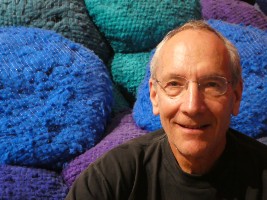Professor Stafford Louis Lightman

University of Bristol, Bristol
Stafford Lightman is Professor of Medicine at the University of Bristol and was the founding Director of the Henry Wellcome Laboratories for Integrative Neuroscience and Endocrinology. He started his scientific career working on catecholamines and opioid peptides with Leslie Iversen at the University of Cambridge and provided some of the first data linking opioid peptides with the regulation of neurohypophysial function. At this time he developed techniques to demonstrate the importance of brain stem catecholamine pathways in the regulation of hypothalamic activity. On moving to what is now Imperial College in London, he initiated his studies on the role of the brain in the regulation of the stress response. He demonstrated the shift from CRH to arginine vasopressin in the control of the hypothalamic-pituitary-adrenal axis during chronic stress, demonstrated and characterised the development of stress hyporesponsiveness during lactation in both rats and man and developed models of immunological activation of the stress response. On moving to the University of Bristol he moved the emphasis of his research programme to understanding the importance of dynamics in the delivery of glucocorticoids to the tissues. He showed that CBG acted as a thermocouple allowing differential release of cortisol at normal body temperature or temperatures associated with febrile disease. At this time he started to use a combination of mathematical modelling and biological testing to investigate the oscillatory activity of adrenal stress hormones and discovered how these oscillations emerge as a natural consequence of the interaction between the pituitary gland and the adrenal cortex. His team have demonstrated the importance of glucocorticoid oscillations for tissue specific glucocorticoid receptor mediated signal transduction affecting cognitive, appetitive and metabolic state. He is now translating these findings to man and his research group has demonstrated that both emotional state and neural circuitry are sensitive to changes in the pattern of cortisol secretion.Finally in order to capture the patterns of cortisol secretion that occur in humans both in health and during endocrine disease he designed a novel device called U-Rhythm that can record both circadian and ultradian rhythms of hormones and metabolites in people going about their normal daily activities without the need admission to a clinical research unit.This has now been spun-out by the University of Bristol and is available though the company Dynamic Therapeutics.
Stafford Lightman is a Fellow of The Royal Society, a founder Fellow of the Academy of Medical Sciences. He was also the founder Editor-in-Chief of the Journal of Neuroendocrinology, the founder Chairman of the Pituitary Foundation and a Council Member of the Physiological Society.
Stafford Lightman is a Fellow of The Royal Society, a founder Fellow of the Academy of Medical Sciences. He was also the founder Editor-in-Chief of the Journal of Neuroendocrinology, the founder Chairman of the Pituitary Foundation and a Council Member of the Physiological Society.